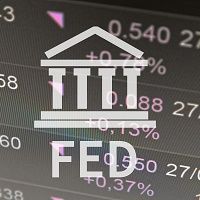- Revenue Cycle Management
- COVID-19
- Reimbursement
- Diabetes Awareness Month
- Risk Management
- Patient Retention
- Staffing
- Medical Economics® 100th Anniversary
- Coding and documentation
- Business of Endocrinology
- Telehealth
- Physicians Financial News
- Cybersecurity
- Cardiovascular Clinical Consult
- Locum Tenens, brought to you by LocumLife®
- Weight Management
- Business of Women's Health
- Practice Efficiency
- Finance and Wealth
- EHRs
- Remote Patient Monitoring
- Sponsored Webinars
- Medical Technology
- Billing and collections
- Acute Pain Management
- Exclusive Content
- Value-based Care
- Business of Pediatrics
- Concierge Medicine 2.0 by Castle Connolly Private Health Partners
- Practice Growth
- Concierge Medicine
- Business of Cardiology
- Implementing the Topcon Ocular Telehealth Platform
- Malpractice
- Influenza
- Sexual Health
- Chronic Conditions
- Technology
- Legal and Policy
- Money
- Opinion
- Vaccines
- Practice Management
- Patient Relations
- Careers
Federal Reserve Raises Interest Rates for First Time Since 2006
After months of speculation and delays, the Federal Reserve on Wednesday announced it will raise short-term interest rates for the first time in nearly a decade.

After months of speculation and delays, the Federal Reserve on Wednesday announced it will raise short-term interest rates for the first time in nearly a decade.
The move ends an lengthy period in which interest rates fell and fell until they reached near zero. The last rate increase was in 2006. The Fed said the new target range for the federal funds rate will be 0.25% to 0.50%.
“Given the economic outlook, and recognizing the time it takes for policy actions to affect future economic outcomes, the Committee decided to raise the target range for the federal funds rate to ¼ to ½ percent,” the Federal Open Market Committee said in a statement Wednesday.
The vote was unanimous.
Fed Chair Janet Yellen had been signaling for months that she believed the economy was improving to the point where it could tolerate a rate hike. Many expected that increase to come in September. However, late concerns about a global economic slowdown caused the Fed to hold off that month and during an October meeting.
Still, domestic economic indicators are relatively strong. The unemployment rate has been trickling down steadily, from 5.7% in January to 5.0% last month (seasonally adjusted). That’s half of the recession-era peak of 10.0% back in 2009.
Inflation has remained below the Fed’s goal rate of 2%, which the Fed said has much to do with declines in the energy sector. However, they expect inflation to hit the target in the “moderate term.”
As Bill Schu noted yesterday, the increase likely won’t have a major impact on most everyday investors. Interest rates on loans will likely rise, but so too will interest on savings accounts. However, there could be short-term market volatility. The markets were up in pre-announcement trading.
